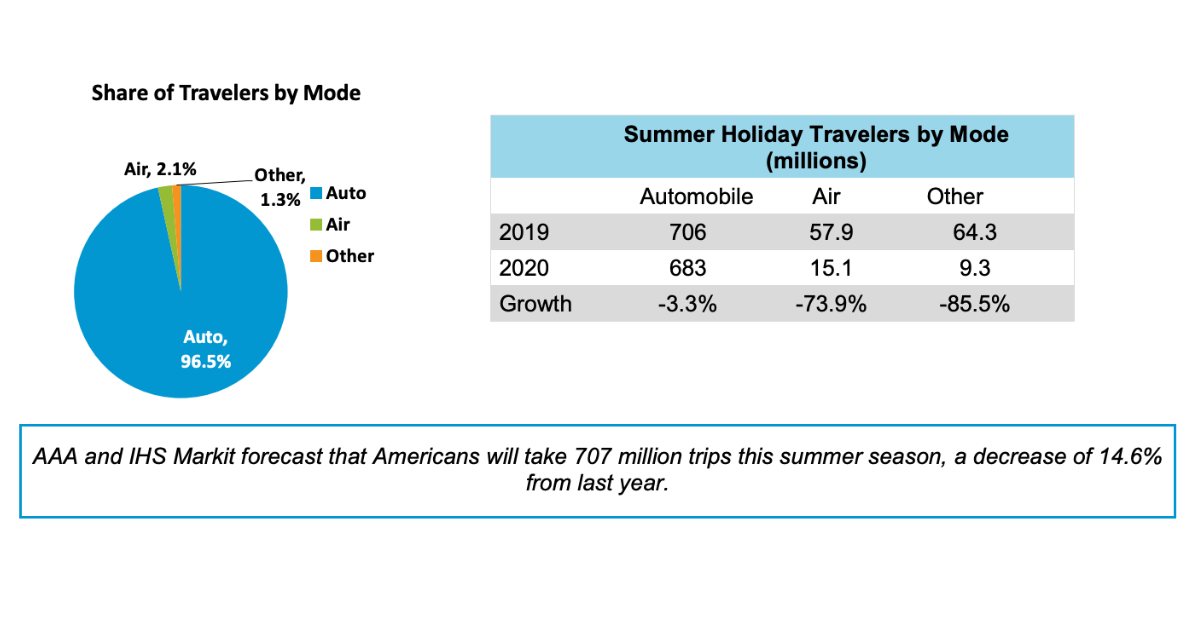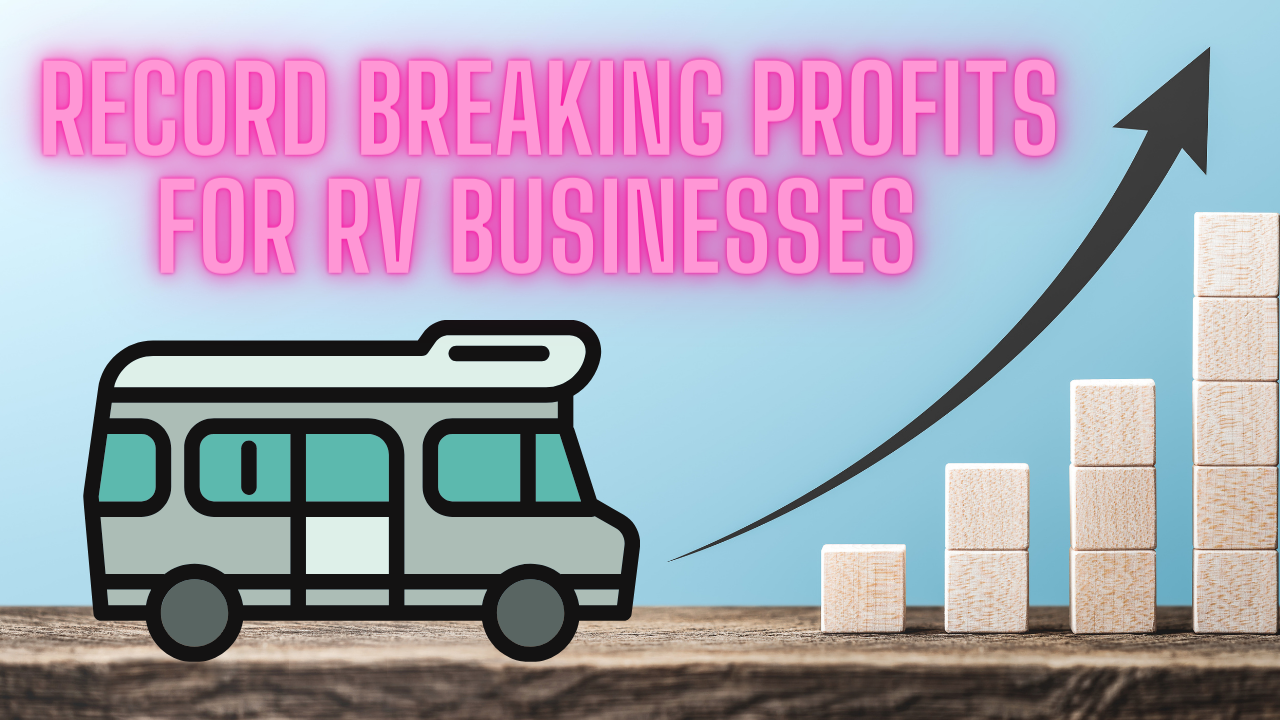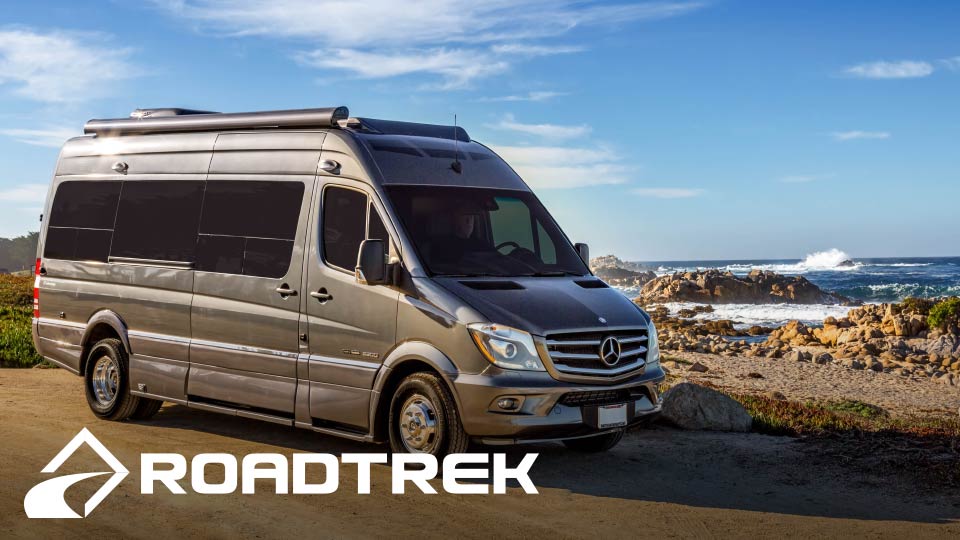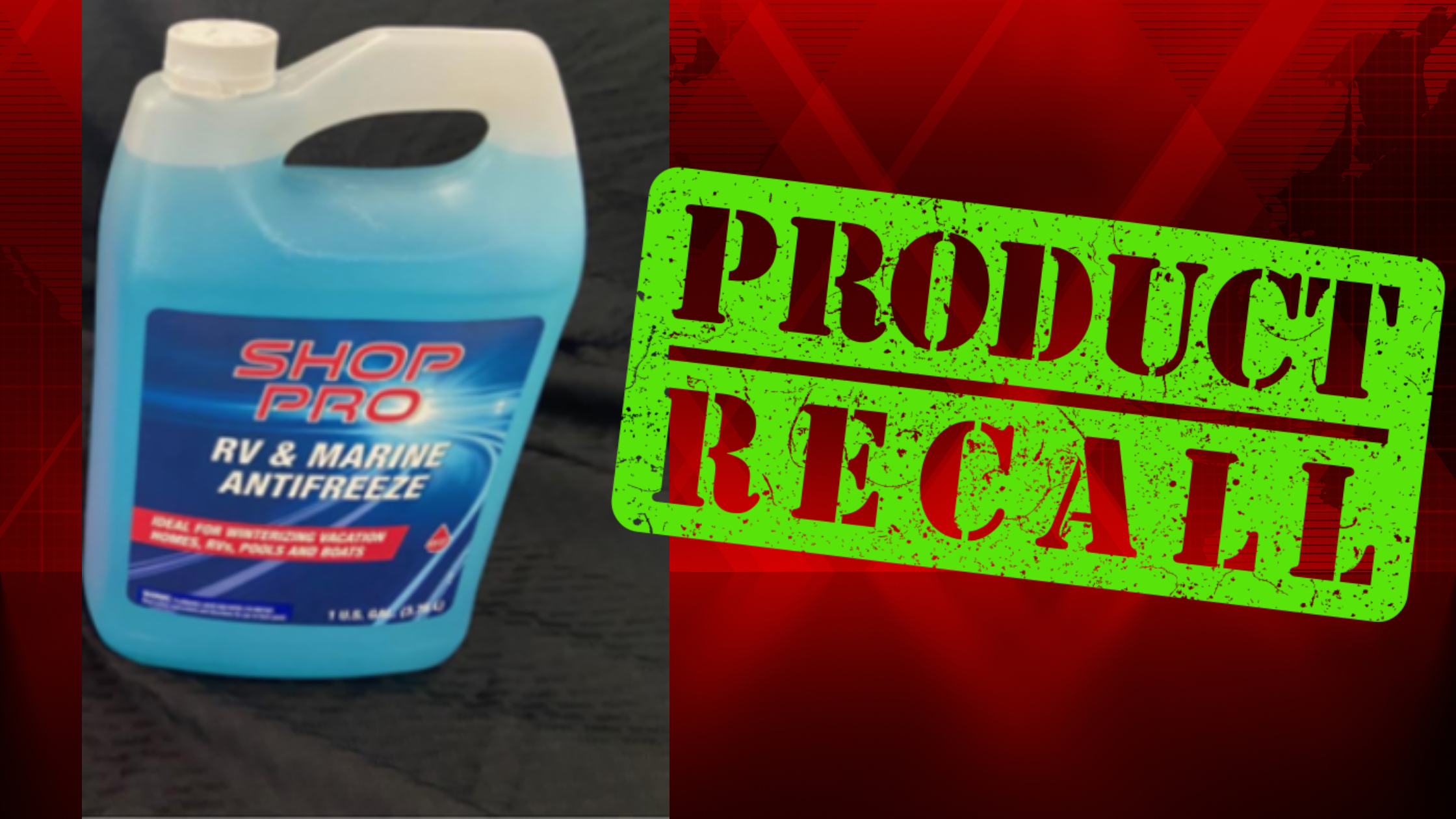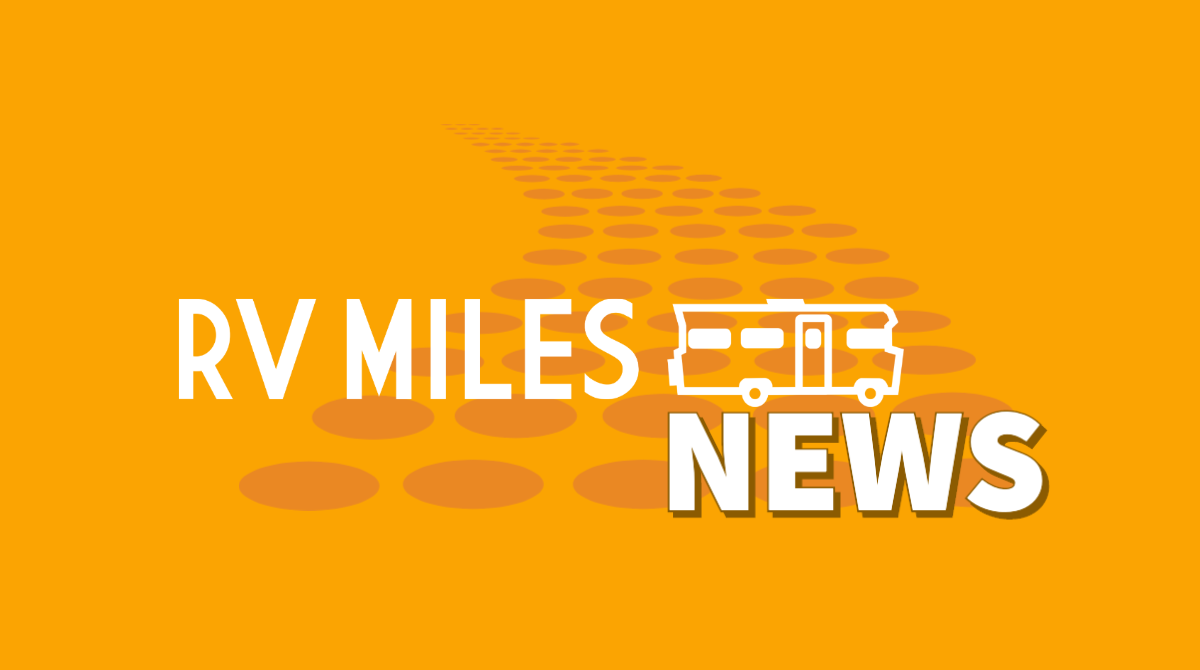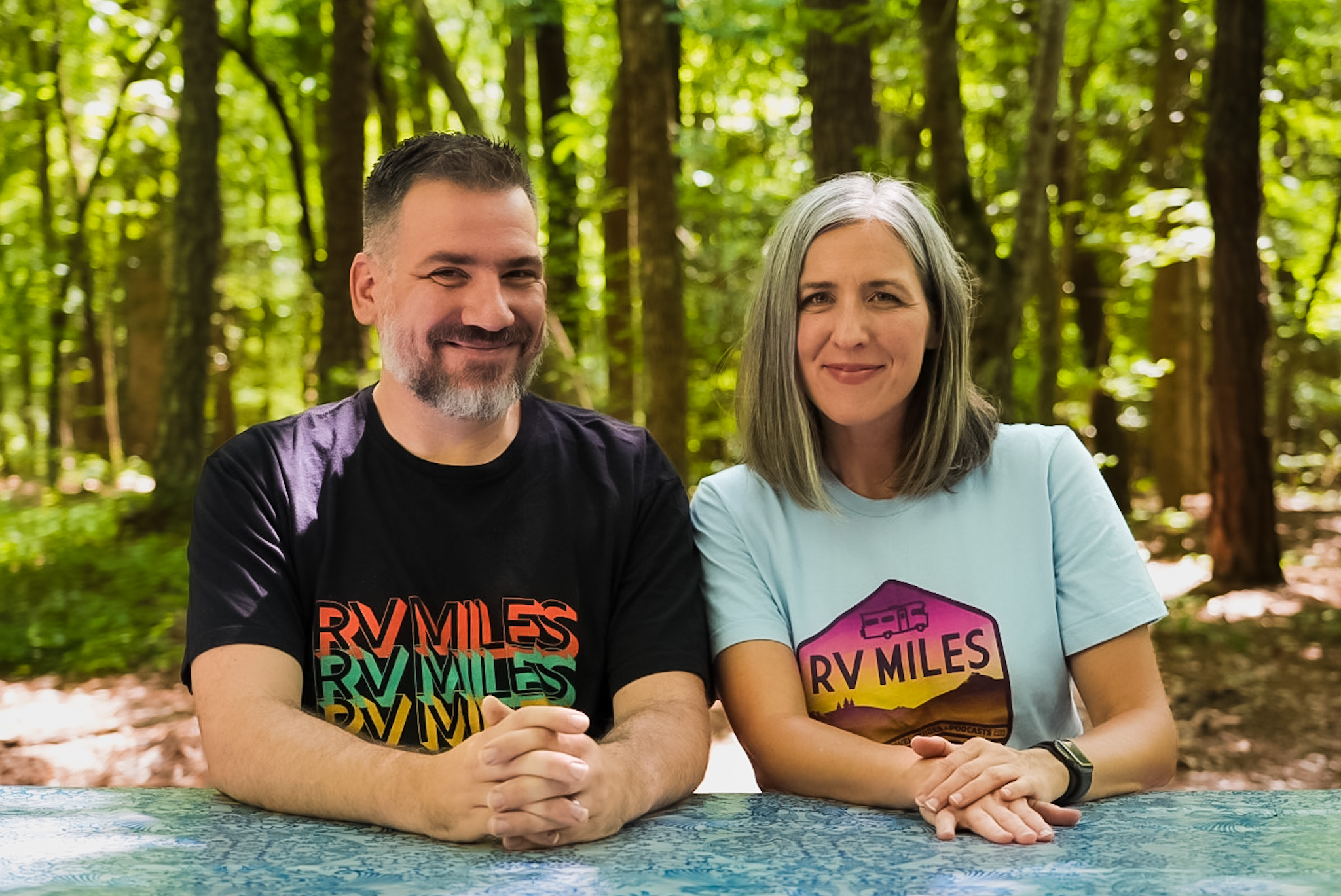This summer, AAA forecasts that Americans will take 700 million trips based on economic indicators and state re-openings. That number is down nearly 15% compared to last July through September and is the first decline in summer travel since 2009. AAA booking trends show Americans are making travel plans, though cautiously and more spur of the moment.
“Americans will get out and explore this summer though they’re taking a ‘wait and see approach’ when it comes to booking and are likely to book more long weekend getaways than extended vacations,” said Paula Twidale, AAA’s senior vice president of Travel. “When they do venture out, travelers will take to the road with 683 million car trips to satisfy their wanderlust
Car trips reign supreme accounting for 97% of the favored mode of transportation. Car trips will also see the smallest decrease in travel volume of just 3% year-over-year. Air travel will be off by about 74%, while rail, cruise ship and bus travel will slide by 86%. Were it not for the pandemic, AAA would be projecting 857 million trips during the third quarter, a 3.6% increase over last year. By this analysis, the pandemic wiped out nearly 150 million person-trips this summer.
With travel restrictions lifting but social distancing still recommended, it’s no surprise that 97% of summer trips are road trips. That’s up from an average of 87% over the last five years. Road trips allow travelers to make their own schedule and customize stops based on comfort level and interests. For families, especially those with small children, it is an easy and less expensive way to travel. And an added benefit right now – gas prices remain low.
“Beyond mapping your route in advance, it is important to book hotels and plan out gas and food stops. Also, keep in mind that some national parks and attractions have capacity limits, so if there is a must-do activity on your trip, you’ll want to make arrangements for these in advance,” added Twidale.
AAA expects the national gas price to average near $2.25/gallon for the third quarter of 2020, which will be a 15% decline from the $2.66 average seen last summer. This will be the cheapest summer for filling-up since 2016.

